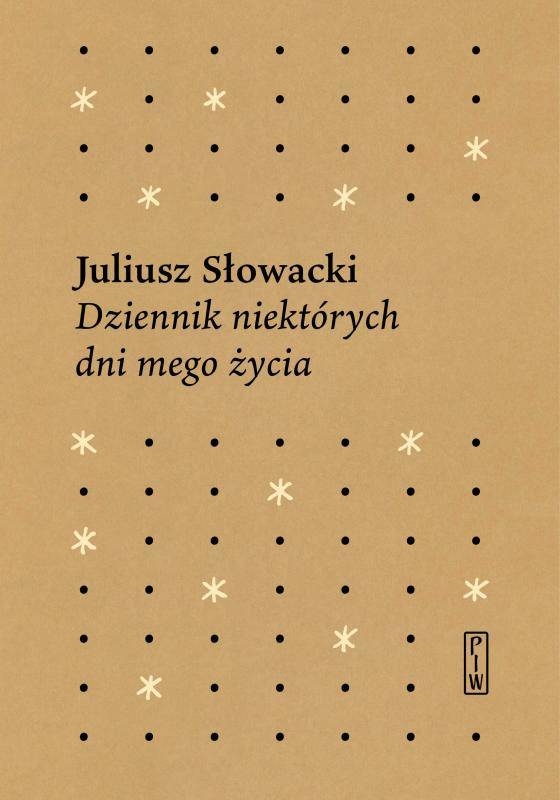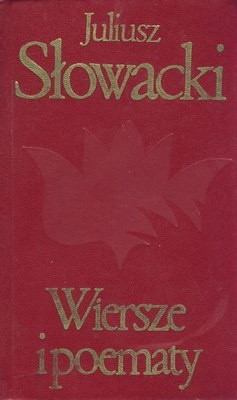Juliusz Słowacki (Polish pronunciation: [ˈjuljuʂ swɔˈvat͡ski]; French: Jules Slowacki; 4 September 1809 – 3 April 1849) was a Polish Romantic poet. He is considered one of the "Three Bards" of Polish literature — a major figure in the Polish Romantic period, and the father of modern Polish drama. His works often feature elements of Slavic pagan traditions, Polish history, mysticism and orientalism. His style includes the employment of neologisms and irony. His primary genre was the drama, but he also wrote lyric poetry. His most popular works include the dramas Kordian and Balladyna and the poems Beniowski, Testament mój and Anhelli. Słowacki spent his youth in the "Stolen Lands", in Kremenets (Polish: Krzemieniec; now in Ukraine) and Vilnius (Polish: Wilno, in Lithuania). He briefly worked for the government of the Kingdom of Poland. During the November 1830 Uprising, he was a courier for the Polish revolutionary government. When the uprising ended in defeat, he found himself abroad and thereafter, like many compatriots, lived the life of an émigré. He settled briefly in Paris, France, and later in Geneva, Switzerland. He also traveled through Italy, Greece and the Middle East. Eventually he returned to Paris, where he spent the last decade …
Juliusz Słowacki
Author details
- Aliases:
-
יוליוש סלאוואצקי, Yuliyush Slovatṣki, J. Slowatzki, and 56 others
Republikanin z ducha, J. Slovackio, 尤利烏什·斯沃瓦茨基, Словацкий, Juliusz Słowacki, Juliusz Slovacki, Ûliuš Slovac'kij, Ûliuš Slovacki, I︠U︡liush Slovat︠s︡kiĭ, Juljusz Slowacki, Piast Dantyszek herbu Leliwa, Juljusz Słowacki, Piast Dantyszek, Józafat Dumanowski, Juliušs Slovackis, Ûliuš Slovackyj, Julius Słowacki, Юлиуш Словацки, Julijus Slovackis, Słowacki, Ûliuš Slovackij, Julius Slovackio, Юлиуш Словацкий, I︠U︡liush Slovat︠s︡ʹkyĭ, יוליוש סלוצקי, Juliusz S.., Jul Slovacki, J. Słowacki, Γιούλιους Σλοβάτσκι, Յուլիուշ Սլովացկի, Jules Słowacki, Julliusz Słowacki, Juliuš Slovacʹkyj, Julius Slowatzki, Julius Slovacki, Yuliush Slovatski, Julius Slowacki, Juliusz Slowatski, י סלאוואצקי, Ûlij Slovackij, Juluisz Słowacki, Юлий Словацкий, יוליוש סלובצקי, Giulio Slowacki, Iulius Słowacki, יו סלאװאצקי, 율리우시스워바츠키, یولیوش سواتسکی, ユリウシュ スウォヴァツキ, Juliuš Slovackij, Юльюш Славацкі, יוליוש סלובאצקי, Jules Slowacki, J Słowacki, Juliuš Słovacʹkyj, Юліуш Словацький - Born:
- Sept. 3, 1809
- Died:
- April 2, 1849
External links
Juliusz Słowacki (Polish pronunciation: [ˈjuljuʂ swɔˈvat͡ski]; French: Jules Slowacki; 4 September 1809 – 3 April 1849) was a Polish Romantic poet. He is considered one of the "Three Bards" of Polish literature — a major figure in the Polish Romantic period, and the father of modern Polish drama. His works often feature elements of Slavic pagan traditions, Polish history, mysticism and orientalism. His style includes the employment of neologisms and irony. His primary genre was the drama, but he also wrote lyric poetry. His most popular works include the dramas Kordian and Balladyna and the poems Beniowski, Testament mój and Anhelli. Słowacki spent his youth in the "Stolen Lands", in Kremenets (Polish: Krzemieniec; now in Ukraine) and Vilnius (Polish: Wilno, in Lithuania). He briefly worked for the government of the Kingdom of Poland. During the November 1830 Uprising, he was a courier for the Polish revolutionary government. When the uprising ended in defeat, he found himself abroad and thereafter, like many compatriots, lived the life of an émigré. He settled briefly in Paris, France, and later in Geneva, Switzerland. He also traveled through Italy, Greece and the Middle East. Eventually he returned to Paris, where he spent the last decade of his life. He briefly returned to Poland when another uprising broke out during the Spring of Nations (1848).



